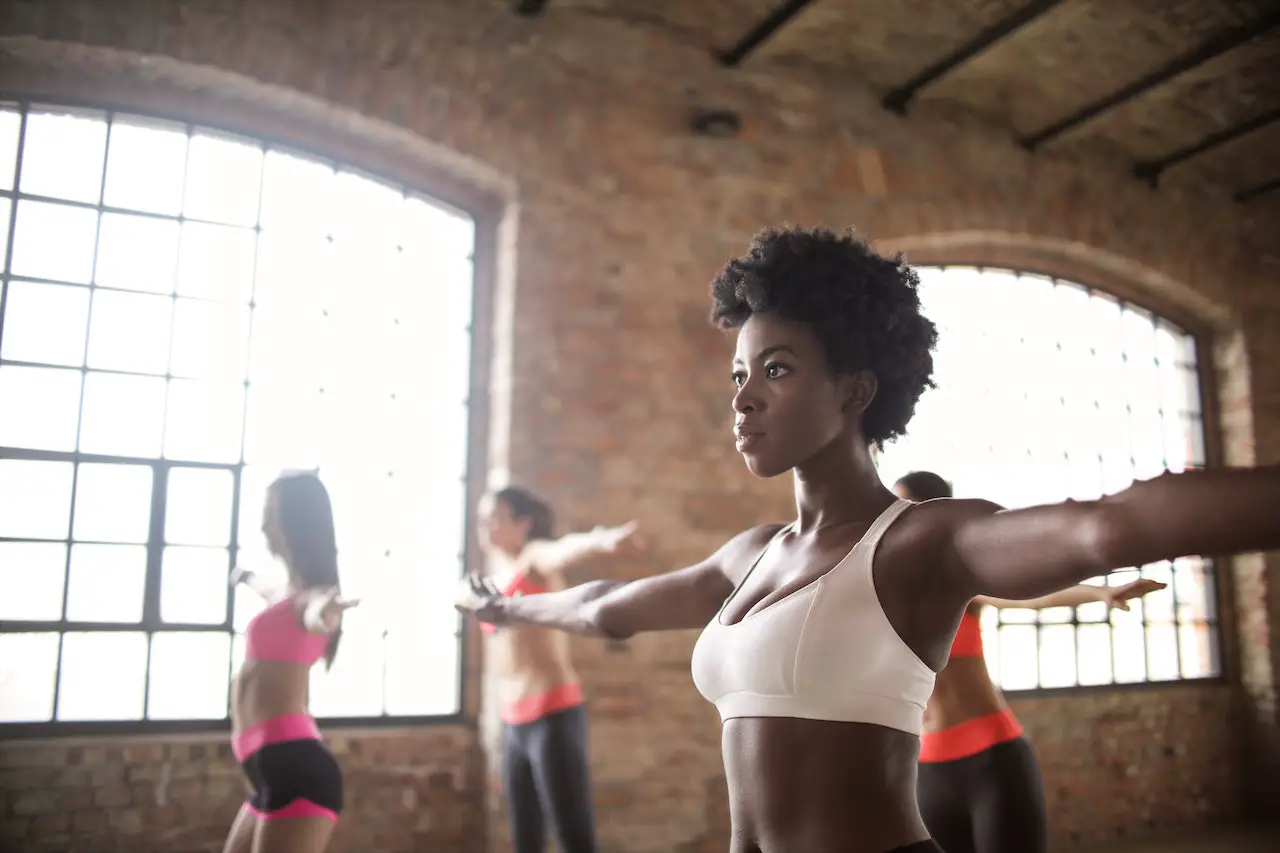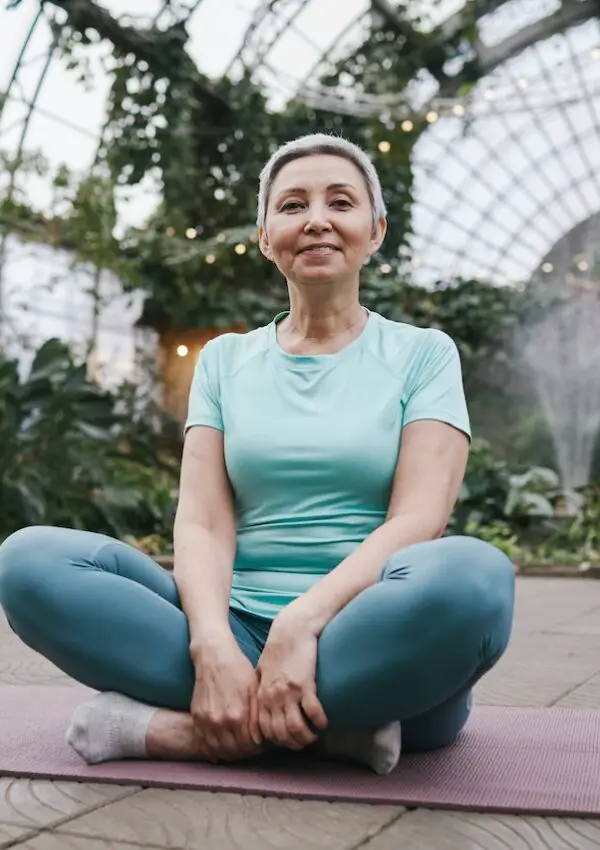
Physical fitness can be either skill or health-related. The ability to complete everyday work with vim and alertness without undue exhaustion means you’re physically fit. Physical fitness is the equivalent of fine-tuning an engine.
Think of fitness as a state that enables you to feel, look, and perform at your best. The health of the heart, lungs, and muscles is a component of physical fitness. Fitness also affects traits like mental acuity and emotional stability.
Muscular strength, cardiovascular endurance, and flexibility are some of the elements of physical fitness. The body’s overall performance in these elements determines your total fitness. The benefits of physical fitness include prevention and control of various ailments.
The following are the five elements of physical fitness.
Cardiovascular Endurance
Cardiovascular endurance measures how well the body’s respiratory and circulatory systems supply energy during physical exertion. Exercises that raise the heart rate for a prolonged length of time help to build cardiovascular endurance. Such activities include swimming, jogging, cycling, and brisk walking.
Regular participants in such activities are more likely to be in good physical condition about cardiorespiratory endurance. Start these exercises softly and build to a higher intensity over time.
There are several ways that exercise raises cardiovascular endurance. For instance, the heart muscle strengthens and can pump more blood each heartbeat.
Muscular Strength
The force that a muscle can produce is referred to as muscular strength. Examples of muscular strength include bench presses, leg presses, and bicep curls. The push-up test is most frequently used to gauge physical prowess.
There are several ways of measuring masculine power. The ideal method is often to lift a certain weight in a predetermined position and compare the results to any given population.
Strength increases by consistently working your muscles. An individual must routinely work out and consume adequate protein to gain muscle. Bench pressing, leg pressing, and bicep curling are a few examples. The push-up test is most frequently used to gauge physical prowess.
Muscular Endurance
Muscular endurance, or the muscle’s capacity to continue applying force without growing tired, is another aspect of fitness.
Strength training, as previously mentioned, results in larger muscles. However, endurance exercise does not always result in bigger muscles because the body concentrates on the cardiovascular system. The body ensures the muscles receive the oxygen-rich blood necessary to continue functioning.
Flexibility
Flexibility refers to the capacity to move within a range of motion appropriate for that joint. Flexibility is crucial because it makes connecting motions seamlessly easier and reduces the risk of injuries. It is unique to each joint and is influenced by factors such as how tight the ligaments and tendons are.
Typical stretches that people do to increase flexibility include,
Static-active stretching – involves holding your body or a stretched portion of the body for an extended time. The splits are an excellent example of static-active stretching.
Dynamic stretching – is when a joint can move over its whole range of motion. It’s a common warm-up stretch since it helps the body prepare for exercise.
Ballistic stretching – Incorporates bouncing and stretching in different positions. You should only do ballistic stretching when your body is fully warmed and loose.
Following a daily stretching routine is the most effective way of achieving complete body flexibility.
Body Composition
This refers to the amount of water, bone, muscle, and fat a person has. The ratio of your body’s constituent weight can change, but you retain the same weight. For example, people with a high muscle-to-lean mass ratio can outweigh those with a lower muscle-to-total body mass ratio.
Importance of Physical Fitness
Physical fitness has several benefits. Let’s look at some of them.
Boosts Energy
Besides increasing your endurance and muscle strength, regular exercise helps your circulatory system function more effectively. This, in turn, provides you with the energy boost you require to complete the chores you set out for the day.
Improves Mood
Physical activities stimulate the brain to release feel-good chemicals that make you happier, more at ease, and less stressed. It can also boost your self-esteem and make you feel good about yourself.
Reduces Risk of Diseases
Physical fitness greatly reduces the chances of developing diseases like diabetes, some types of cancer, and osteoporosis. If you have underlying conditions, exercise can help improve your condition.
Your body gets stronger and healthier when you exercise because it becomes more resistant to common ailments like the flu and colds. Frequent exercise also lowers blood pressure, lowering your risk of cardiac arrest.
Keeps Your Mind Sharp
As you age, you start showing signs of wear and tear. Exercise sharpens your mind and maintains strong muscles, healthy bones, and flexible joints. That makes you feel a lot happier and more content with life.
A Healthy Heart
Some factors that negatively affect cardiovascular health include high blood pressure, smoking, and obesity. Maintaining an active lifestyle and eating a balanced diet can keep your heart healthy.
Frequent exercise improves vascular strength and makes the heart more effective at circulating blood around the body.
Make You Sleep Better
Exercising regularly can help you sleep better and deeper and fall asleep more quickly. But remember to avoid exercising right before bedtime if you don’t want to be too stimulated to sleep.
How to Make Exercise Part of Your Daily Routine
You can do the following to make exercising fun and part of your daily routine.
Engage in physical activities with your loved ones – Having a workout buddy increases your likelihood of enjoying exercise. You can also organize social activities that include physical activity. You can also sign up for an exercise membership or team, such as dance classes or hiking clubs.
Make routine tasks more physical – Little adjustments can help. For instance, instead of using the elevator, use the steps, self-wash the vehicle, or park further from where you’re going.
Make exercising more enjoyable – Try to watch TV or listen to music while working out. Also, try out different styles of exercise to avoid getting bored.
Bottom Line
Measures of physical fitness are closely related to health promotion and disease prevention. Regular exercise does not only boost your energy, but it also improves your mood and makes you sleep better. Make regular exercise part of your routine to achieve total physical fitness.





